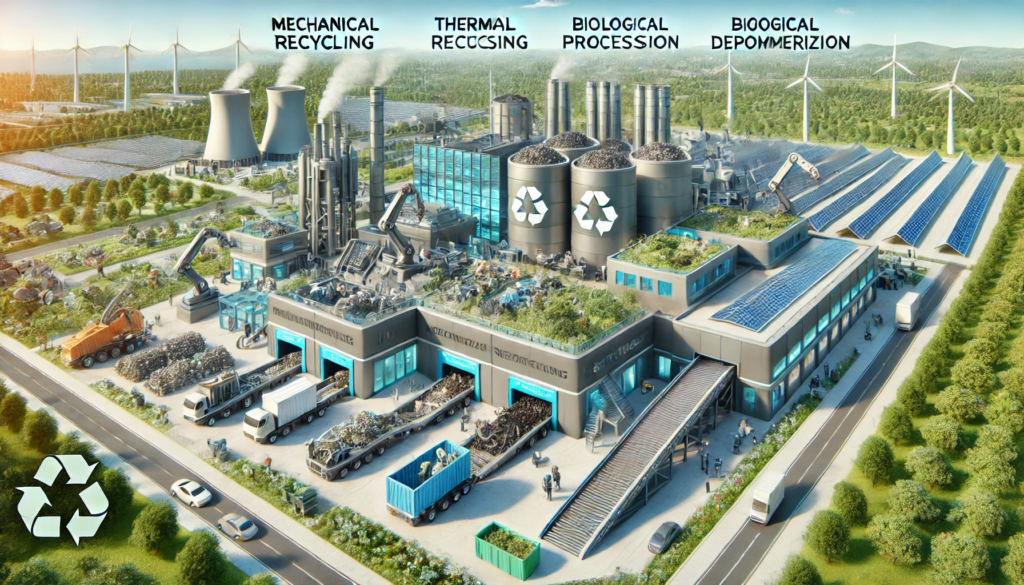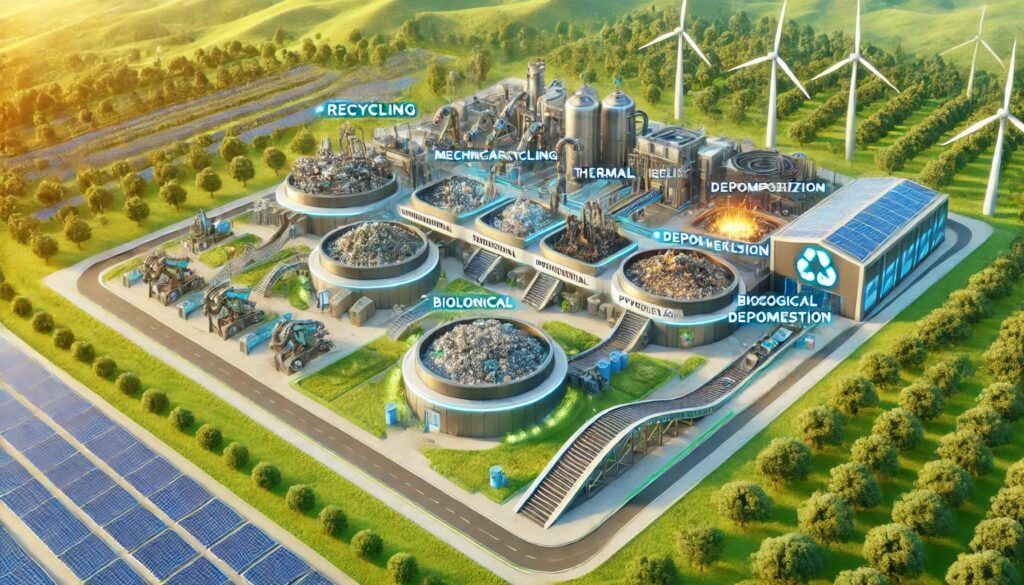
Digestate with biochar: an organo-mineral composite for sustainable agriculture
Digestate with biochar and glauconite is an innovative organo-mineral composite for reducing nutrient losses, prolonged plant nutrition, and increasing soil fertility.
In today’s realities, when the amount of waste on the planet is rapidly growing, waste recycling is becoming a critically important task. Modern technologies allow not only to reduce the volume of waste, but also to obtain secondary raw materials, energy and useful materials from them. However, each recycling method has its advantages and disadvantages. In this article, we will consider the main methods of waste disposal and recycling, their effectiveness and impact on the environment.

Mechanical recycling involves sorting, cleaning, and shredding waste and then using it to make new products. The most common materials for recycling are plastic, glass, metal, paper, and cardboard.
Advantages:
Disadvantages:
Thermal processing involves burning waste or decomposing it at high temperatures to produce thermal energy, gas, or liquid fuel.
Advantages:
Disadvantages:
Biological processing is applied to organic waste (food residues, agricultural waste, sewage sludge).
Advantages:
Disadvantages:
Chemical recycling involves breaking down waste at the molecular level to create new materials or fuels.
Advantages:
Disadvantages:

Each waste treatment method has its pros and cons. The optimal approach is a combined approach, in which mechanical treatment is combined with biological and chemical disposal, and incineration is used only for waste that cannot be recycled.
The future lies in closed-loop economies, where waste is not thrown away but becomes a resource for new production. Investing in recycling and developing new technologies will help reduce the environmental burden and create a more sustainable waste management system.

Digestate with biochar and glauconite is an innovative organo-mineral composite for reducing nutrient losses, prolonged plant nutrition, and increasing soil fertility.

Soil degradation and water pollution are increasingly merging into a combined environmental crisis, especially in arid and post-industrial regions.

Introduction Among the promising and ecologically acceptable methods of environmental restoration, priority is given to biological approaches (bioremediation, phytoremediation), i.e., the purification of soils and…